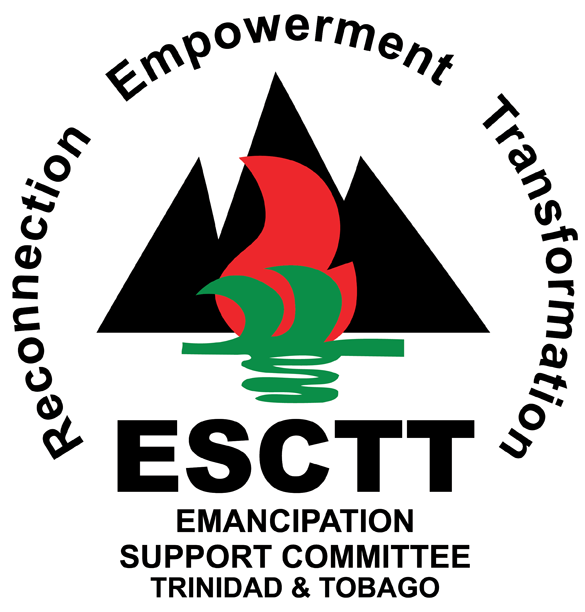Stimulation of the Mind and Spirit.
Chairman of the Emancipation Support Committee, Khafra Kambon has congratulated the Caribbean Community for its decision to call on Europe to pay reparations for Africanenslavement and native genocide.
Speaking at the launch of the Emancipation festival 2014, which has as its theme “Reparation: Righting a Historical Wrong,” Mr. Kambon also encouraged those present to continue to support Caribbean governments. “They need it, they need the commitment of the Caribbean people to successfully prosecute this charge…the reality is this struggle is not going to be about “development dialogues” and “conversations,” he told the attendees at Lions Civic Centre, Port of Spain, on Sunday, “rather it is about Righting a Historical Wrong – reparations is material and psychological and necessary for the salvation of the world”.
Since the ESC is commi
tted to reparations and information, it was a fitting theme for this year’s series of events that culminate on Emancipation Day, August 1st.
Mr. Kambon said it was a timely move since 2015 has been declared the beginning of UN Decade for people of African descent. “This is an opportunity, an invitation for us to look inward, to see where we are in the world, analyse the reasons, and develop a way forward,” he said.
But more importantly, he said, if we want to understand why we have to demand reparations, we have to measure our loss in relation to where we came from and where we are today.
Although Africa today is the scene of many disasters, man-made disasters, too often aided and abetted by its leaders, that is not the Africa of which Mr. Kambon speaks. That Africa which people see now and rejects is the pos
t-Maafa era, a Kiswahili word meaning disaster, terrible occurrence or great tragedy. Maafa refers to the Pan African discourse on the five centuries of suffering through slavery, imperialism, colonialism, apartheid, oppressions and exploitation.
The Africa of which Mr. Kambon speaks is “the birthplace of mankind, the continent that did the first mining, invented agriculture, produced the first mathematical instruments. Plenty evidence still exists of our built heritage before the maafa – from the pyramids of North Africa to the Churches of Lalibela to the ruins of Great Zimbabwe to the University of Sankore in Mali.”
“Many of us still do not know what many European scholars knew even when they were denying our humanity. Though they knew, few would admit like the aristocrat Count Volney: ‘To think that a race of Black men who are today our slaves and the object of our contempt are the same ones to whom we owe our arts, sciences and even the very use of speech,’” he said.
But knowledge alone will not be enough, Mr. Kambon said. There must be images, experiences that build African pride and sense of self. One needs to feel strongly that the claim for reparations is on moral grounds, just as it is based on in law.
This year’s theme, he said, is to encourage everyone who hears the call to become an advocate, a missionary for reparations.
Coupled with the theme the Emancipation Support Committee’s programme uses the adrinka symbol of the Akoben – which is translated to mean: Call to Action.
Once again the ESC presents a programme filled with educational, cultural and spiritual activities which are meant to broaden the mind and embolden the spirit of the African race in Trinidad and Tobago. From the mid of June through to August 3rd, with the Lidj Yasu Omowale Village opening on 29th July.Next on the agenda: The Yoruba Drum Festival on Saturday 14th June, and on Sunday 15th June – The Launch of the Kwame Ture Memorial Lecture Series with featured guest – Raymond A. Winbush. Mr. Winbush is an American-African, scholar/activist in the field of developmental psychology of African boys and reparations for theTransatlantic Slave Trade. He is also the author of a controversial book entitled – Should America Pay?: Slavery and the Raging Debate on Reparations.

